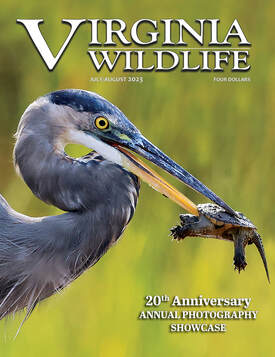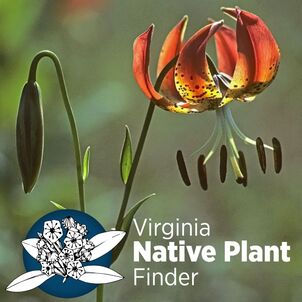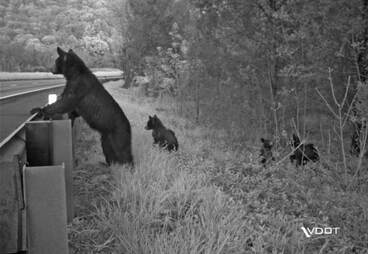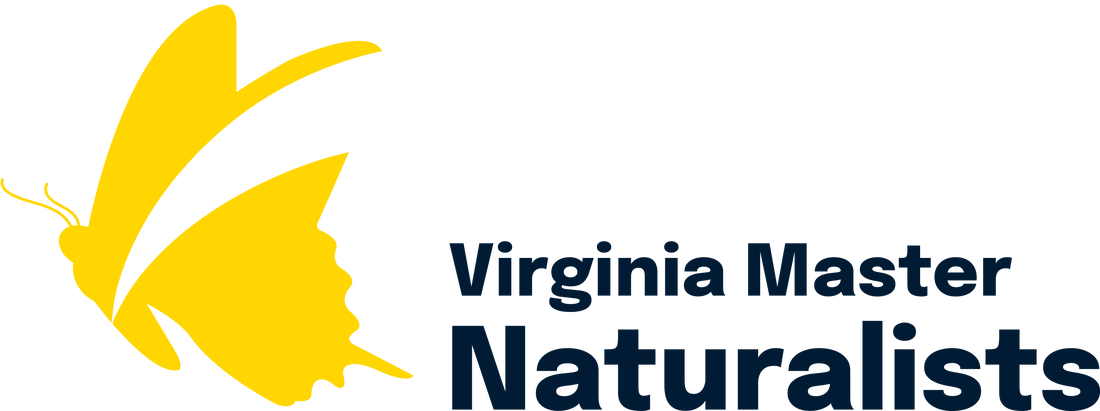
Explore the Wild with DWR
--By Molly Kirk, Creative Content Manager & Editor, Virginia Wildlife, Virginia Department of Wildlife Resources
The Virginia Department of Wildlife Resources (DWR) has a mission to lead wildlife conservation and inspire people to value the outdoors and their role in nature. The outdoors are better together, and DWR aspires to welcome all Virginians into outside spaces to recreate safely, knowledgeably, and successfully. The incredibly varied work that DWR’s employees does supports not only healthy habitats for wildlife, but also safe, accessible recreational opportunities for the public to enjoy wildlife and the outdoors. You can read more about the wide variety of work that DWR does, and its impact, in DWR’s 2023 Annual Report at: virginiawildlife.gov/about/annual-report/
You can stay connected with DWR throughout the year by subscribing to Virginia Wildlife magazine and signing up for the Notes from the Field email newsletters as well. Virginia Wildlife magazine, published six times a year, features entertaining and educational content about Virginia’s wildlife, outdoor activities, and DWR’s work. Find out more: virginiawildlife.gov/virginia-wildlife/. DWR also produces five different monthly email newsletters—hunting, fishing, wildlife viewing, boating, and law enforcement—that keep you up to date with interesting topics and great how-to articles. See more: virginiawildlife.gov/blog/ Sign up: virginiawildlife.gov/the-outdoor-report/
--By Molly Kirk, Creative Content Manager & Editor, Virginia Wildlife, Virginia Department of Wildlife Resources
The Virginia Department of Wildlife Resources (DWR) has a mission to lead wildlife conservation and inspire people to value the outdoors and their role in nature. The outdoors are better together, and DWR aspires to welcome all Virginians into outside spaces to recreate safely, knowledgeably, and successfully. The incredibly varied work that DWR’s employees does supports not only healthy habitats for wildlife, but also safe, accessible recreational opportunities for the public to enjoy wildlife and the outdoors. You can read more about the wide variety of work that DWR does, and its impact, in DWR’s 2023 Annual Report at: virginiawildlife.gov/about/annual-report/
You can stay connected with DWR throughout the year by subscribing to Virginia Wildlife magazine and signing up for the Notes from the Field email newsletters as well. Virginia Wildlife magazine, published six times a year, features entertaining and educational content about Virginia’s wildlife, outdoor activities, and DWR’s work. Find out more: virginiawildlife.gov/virginia-wildlife/. DWR also produces five different monthly email newsletters—hunting, fishing, wildlife viewing, boating, and law enforcement—that keep you up to date with interesting topics and great how-to articles. See more: virginiawildlife.gov/blog/ Sign up: virginiawildlife.gov/the-outdoor-report/
 Turk's cap lily (Lilium superbum). Image courtesy of VDCR
Turk's cap lily (Lilium superbum). Image courtesy of VDCR New and Improved Virginia Native Plant Finder from DCR
--By Emi Endo, Senior Public Relations and Marketing Specialist, Virginia Department of Conservation and Recreation
We are excited to share with you the public launch of the new and improved Virginia Native Plant Finder.
As you may know, a separate Solar Site Native Plant Finder was developed in 2018, targeted to developers of large-scale projects. Now, the original Native Plant Finder that was created in 2014 and the Solar Site Native Plant Finder have been combined into one. This is designed to serve everyone from individual backyard gardeners to landscapers of major projects.
What's new?
See our press release for more details. To make it easier to spread the word, we've put together a social media toolkit that includes graphics and suggested captions. You’re welcome to customize and share these with your audiences as you see fit.
We plan to create additional promotional materials in the future, such as short video tutorials on how to use the tool. Thanks to those of you who have been test-driving this; please keep sending us feedback.
--By Emi Endo, Senior Public Relations and Marketing Specialist, Virginia Department of Conservation and Recreation
We are excited to share with you the public launch of the new and improved Virginia Native Plant Finder.
As you may know, a separate Solar Site Native Plant Finder was developed in 2018, targeted to developers of large-scale projects. Now, the original Native Plant Finder that was created in 2014 and the Solar Site Native Plant Finder have been combined into one. This is designed to serve everyone from individual backyard gardeners to landscapers of major projects.
What's new?
- The database is larger, with about 1,600 species, many of which are commercially available.
- For species that are commercially available, you can get links to vendor sources who say they carry live plant material, or seeds, or both.
- Geographic location down to the county level for all species is now included.
- You can filter by using more characteristics than the previous version.
See our press release for more details. To make it easier to spread the word, we've put together a social media toolkit that includes graphics and suggested captions. You’re welcome to customize and share these with your audiences as you see fit.
We plan to create additional promotional materials in the future, such as short video tutorials on how to use the tool. Thanks to those of you who have been test-driving this; please keep sending us feedback.
JMU Becomes Pollinator-Smart
The Pollinator-Smart program is sponsored by both the Virginia Department of Conservation and Recreation and the Virginia Department of Environmental Quality. Recently, James Madison University became the first university in Virginia to earn the Virginia Pollinator-Smart certification for their pollinator-friendly solar energy development on the campus.
The Pollinator-Smart program is sponsored by both the Virginia Department of Conservation and Recreation and the Virginia Department of Environmental Quality. Recently, James Madison University became the first university in Virginia to earn the Virginia Pollinator-Smart certification for their pollinator-friendly solar energy development on the campus.
VIMS Joins A Voyage for Oceans, A Voyage for Earth
--Submitted by Kirk Havens, Center for Coastal Resources Management Director, Virginia Institute of Marine Science
The Virginia Institute of Marine Science is now an Educational Partner of the Moananuiākea: A Voyage for Oceans, A Voyage for Earth. The Voyage is a 43,000 nautical mile, 47-month circumnavigation of the Pacific by traditional Polynesian voyaging canoes Hōkūle‘a and Hikianalia to 36 countries and archipelagoes, nearly 100 indigenous territories, and 345 ports. The purpose of the Voyage is to ignite a movement of 10 million “planetary navigators” who will pursue critical and inspiring “voyages” to ensure a better future for the earth. The Voyage will do so by developing young leaders and engaging communities around the world while amplifying the vital importance of our oceans, nature, science and indigenous wisdom.
VIMS Partner Page (waahonua.com)
We encourage you to watch the video of the lead Navigator and CEO of the Polynesian Voyaging Society, Nainoa Thompson’s talk at VIMS. One Ocean. One Canoe. One People. - YouTube
--Submitted by Kirk Havens, Center for Coastal Resources Management Director, Virginia Institute of Marine Science
The Virginia Institute of Marine Science is now an Educational Partner of the Moananuiākea: A Voyage for Oceans, A Voyage for Earth. The Voyage is a 43,000 nautical mile, 47-month circumnavigation of the Pacific by traditional Polynesian voyaging canoes Hōkūle‘a and Hikianalia to 36 countries and archipelagoes, nearly 100 indigenous territories, and 345 ports. The purpose of the Voyage is to ignite a movement of 10 million “planetary navigators” who will pursue critical and inspiring “voyages” to ensure a better future for the earth. The Voyage will do so by developing young leaders and engaging communities around the world while amplifying the vital importance of our oceans, nature, science and indigenous wisdom.
VIMS Partner Page (waahonua.com)
We encourage you to watch the video of the lead Navigator and CEO of the Polynesian Voyaging Society, Nainoa Thompson’s talk at VIMS. One Ocean. One Canoe. One People. - YouTube
 Image courtesy of Virginia Transportation Research Council/VDOT
Image courtesy of Virginia Transportation Research Council/VDOT Virginia's All New Habitat Connectivity Hub
--By Jessica Roberts, Director of Habitat Connectivity, Wild Virginia
Wild Virginia, along with many of partners from the Virginia Safe Wildlife Corridors Collaborative, is thrilled to announce the launch of the new Habitat Connectivity Hub – a captivating StoryMap journey into the heart of our mission to safeguard both people and wildlife in Virginia. As one of the top ten U.S. states for wildlife-vehicle conflict, Virginia is in dire need of mitigation tactics, like the installation of wildlife over- and underpasses, allowing for safe passage of both terrestrial and aquatic wildlife.
Our goal with this Hub is to make connectivity data more accessible and transparent so anyone can stay informed and support the connectivity needs in their area.
You can find all things connectivity with our Hub!
Not only do we include this important information on reducing wildlife-vehicle conflict, but we incorporate tools to help identify areas for better land protection, corridors, and aquatic connectivity needs to benefit all communities, especially those underserved.
Thank you to all of the partners that donated their data, time, and funding to make this Hub possible!
How to Explore:
--By Jessica Roberts, Director of Habitat Connectivity, Wild Virginia
Wild Virginia, along with many of partners from the Virginia Safe Wildlife Corridors Collaborative, is thrilled to announce the launch of the new Habitat Connectivity Hub – a captivating StoryMap journey into the heart of our mission to safeguard both people and wildlife in Virginia. As one of the top ten U.S. states for wildlife-vehicle conflict, Virginia is in dire need of mitigation tactics, like the installation of wildlife over- and underpasses, allowing for safe passage of both terrestrial and aquatic wildlife.
Our goal with this Hub is to make connectivity data more accessible and transparent so anyone can stay informed and support the connectivity needs in their area.
You can find all things connectivity with our Hub!
- Discover high-risk zones for wildlife-vehicle conflict
- Explore cutting-edge research on mitigation efforts
- Learn about the latest tools illustrating infrastructure enhancements for improved connectivity
Not only do we include this important information on reducing wildlife-vehicle conflict, but we incorporate tools to help identify areas for better land protection, corridors, and aquatic connectivity needs to benefit all communities, especially those underserved.
Thank you to all of the partners that donated their data, time, and funding to make this Hub possible!
How to Explore:
- Access the Hub (currently housed on the VSWCC site)
- For further details contact Wild Virginia’s Director of Habitat Connectivity, Jessica


 RSS Feed
RSS Feed